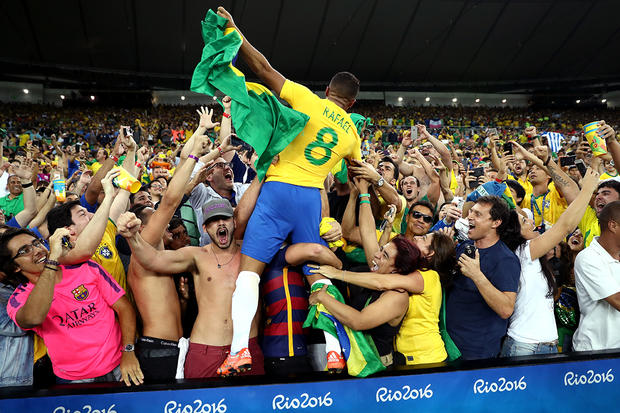-
Tips for becoming a good boxer - November 6, 2020
-
7 expert tips for making your hens night a memorable one - November 6, 2020
-
5 reasons to host your Christmas party on a cruise boat - November 6, 2020
-
What to do when you’re charged with a crime - November 6, 2020
-
Should you get one or multiple dogs? Here’s all you need to know - November 3, 2020
-
A Guide: How to Build Your Very Own Magic Mirror - February 14, 2019
-
Our Top Inspirational Baseball Stars - November 24, 2018
-
Five Tech Tools That Will Help You Turn Your Blog into a Business - November 24, 2018
-
How to Indulge on Vacation without Expanding Your Waist - November 9, 2018
-
5 Strategies for Businesses to Appeal to Today’s Increasingly Mobile-Crazed Customers - November 9, 2018
Gene doping test is in place: IOC
We are interested in the quality of work, and not the quantity of probes taken. We’ve been talking with WADA to ensure the integrity of those samples is maintained.
Advertisement
The additional measures were implemented following the scandal over state-sponsored doping in Russian Federation, including evidence that tainted samples were swapped out for clean ones during the Sochi Games.
The World Anti-Doping Agency reinstated the lab’s credentials in July, ending a month-long suspension.
“Since the Olympic village opened we have carried out 2,701 doping tests”.
“All of us fighting for the clean athletes were deeply shocked by the McLaren report and felt betrayed in many ways”, Budgett said.
Budgett said in Rio, samples go straight to the city’s anti-doping laboratory and are opened immediately, cutting the risk of tampering.
Budgett said a “huge security presence” involving national guard and private security officers is in place, along with an “extensive network” of surveillance cameras. Technicians must enter two at a time.
International Olympic Committee president Thomas Bach said there would be no place to hide for drugs cheats before the Games and the organisation’s medical and scientific director, Richard Budgett, said the process of testing has been more thorough than ever.
“Any athlete who is cheating should be very scared”, he said. “There will be forensic examination of samples as well to make sure there has been no tampering”.
He said athletes guilty of gene doping or using the so-called designer drugs more sophisticated forms of performance-enhancing drugs will be caught.
McLaren’s report – which was based largely on testimony from former Russian anti-doping lab director Grigory Rodchenkov – prompted calls for Russia to be banned entirely from the Rio Games.
“There was a special task force [here] for the first time – funded by $500,000 by the IOC run by WADA using national anti-doping operations from all five continents – to actually look at the athletes about to come to the Games, see what programme of testing they were undergoing, identifying any gaps, plug those gaps with the help of global federations and national anti-doping organisations”.
“Of course, we look at ourselves and wonder how we could have done better in Sochi”, Budgett said.
The samples taken at the Rio Olympics will be stored for 10 years and can also be retested later once there are new scientific advances.
Records, gold medals and jaw-dropping feats have dominated the Rio Olympics, but there remains doubt about how many clean athletes are competing in the Games.
“The message to all cheats is, ‘Beware, you will be caught eventually”, Budgett said.
Budgett said that as part of the re-analyses programme launched by the International Olympic Committee back in October 2015 on the samples from Beijing 2008 and London 2012, 98 samples tested positive. A new gene doping test is for instance expected to come online within months.
Advertisement
“With the test you can actually tell if the EPO gene is in the wrong place”.





























